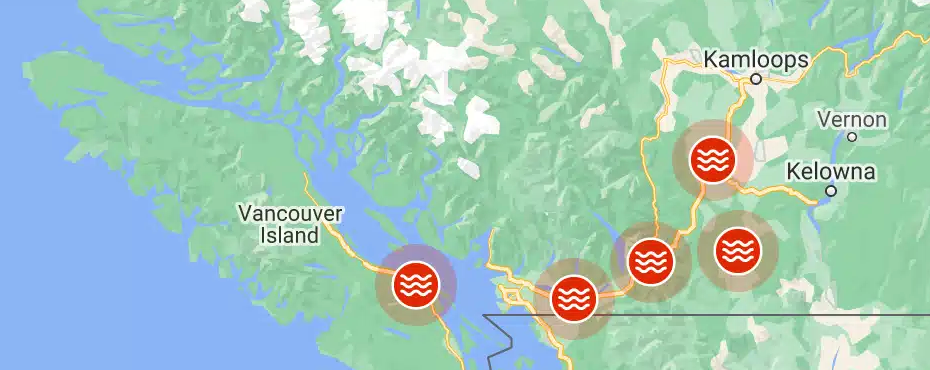About a week after severe flooding washed away several major highways in BC, the small community of Cortes Island hasn't seen too much disruption in availability of goods thanks to local suppliers.
When CKTZ News spoke to Aynsley Phillips at the Gorge Harbour Marina’s general store on Monday, she said it was more or less business as usual, due to their reliance on products that come primarily from Vancouver Island.
Phillips said that the pandemic has definitely helped the staff reassess long-term preparedness and they make sure to stock up on bulk staple items. She also said that the primary customer base—local residents in the off-season—are well versed in the unpredictability of island life.
At Cortes Market on Monday afternoon, owner Bertha Jeffery said the local supply has been steady, but she has seen major shortages with some of the products she sources from the mainland, and was hoping another supplier in Victoria could fill the gap.
One obvious limit on availability of day-to-day products has come via a provincial government order regarding car fuel.
“If you are not operating an essential vehicle, you are limited to purchasing 30 litres of fuel per trip to the gas station," the order states.
The restriction is currently in place until the end of the month and applies to the Gulf Islands, Vancouver Island, the Sunshine Coast, as well as flood-affected parts of the Lower Mainland and Sea to Sky Highway.
Additionally, Dan McTeague, president of Canadians for Affordable Energy, said in an interview last Friday with CTV that most of the gas sold on Vancouver Island comes from Washington state refineries and is delivered to mid-island by barge. Therefore, the cut-off road access to Alberta and other areas beyond the floods in the Lower Mainland doesn’t impact the local market, and McTeague said the fuel supply should be steady.
When asked if there are any foreseen interruptions on the ferry routes between Cortes, Quadra and Campbell River, Deborah Marshall, executive director of public affairs for BC Ferries, emailed CKTZ, “We have fuel contracts with suppliers and don’t anticipate shortages.”
Marshall also said that the flooding had not impacted BC Ferries services.
Canada Post, on the other hand, issued a yellow service alert for four western provinces on Nov. 15, according to Phil Legault, who works in media relations.
“While mail delivery continues wherever possible, customers may experience some delays in receiving items destined for B.C. or originating from the province. Customers sending time-sensitive items to or from areas in Western Canada should consider using Xpresspost™ or Priority™ service to help ensure timely delivery of their mailing," he wrote.
The extreme rainfall that resulted in severe flooding in five total areas across BC’s lower mainland and southern Vancouver Island culminated in the province declaring a state of emergency on Wednesday, Nov. 17.
The federal government has deployed the Canadian Armed Forces to assist with flood relief. According to a press release accompanying the state of emergency declaration, “approximately 17,775 people [were] evacuated due to impacts from the flooding, with 5,918 properties on Evacuation Order, and 3,632 properties on Evacuation Alert.”
Meanwhile, Environment Canada warns that another storm system is on the way, set to touch down overnight Wednesday and last until Friday morning, with total expected rainfall 40-80 mm. The Fraser Valley and the Sea to Sky corridor—two areas that are still dealing with the aftermath of the last storm—are particularly vulnerable to more heavy precipitation.
Tune into the CKTZ update below:



